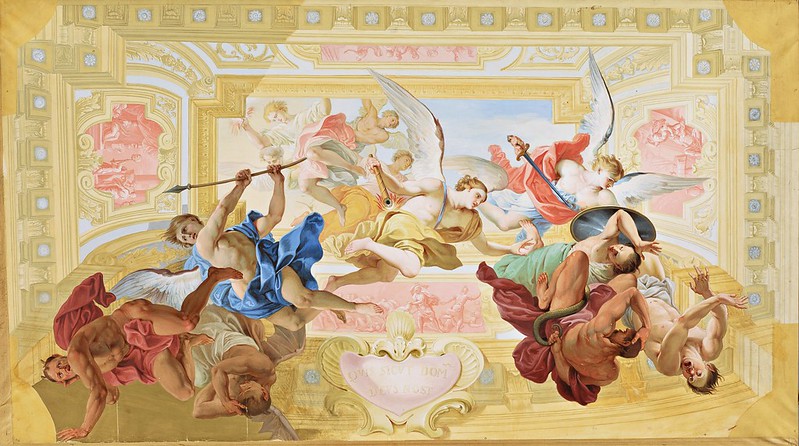Jan Václav Voříšek (1791-1825)
- Missa solemnis (c.1820)
Performers: Patrice Michaels (soprano); Tami Jantzi (mezzo-soprano); William Watson (tenor); Peter Van De Graaff (bass);
Prague Chamber Chorus; Czech National Symphony Orchestra; Paul Freeman (1936-2015, conductor)
Further info: Voříšek - Symphony in D & Mass in B-Flat
---
Bohemian composer, pianist and organist. He was the youngest son of
Václav František Voříšek (1749-1815) who taught him the piano and
singing. He later studied the organ and the violin and began to compose.
As a child prodigy, he started to perform publicly in Bohemian towns at
the age of nine. After settled in Prague, he studied at a grammar
school and later he went on at the Prague University. At the same time,
he took piano and composition lessons from Václav Tomášek. In 1813 he
moved to Vienna to study law at the university as well as music under
Johann Nepomuk Hummel. In Vienna he personally met Ludwig van Beethoven
(1814) and many other important personalities of European musical life;
among others Franz Schubert, with whom they became good friends. He
finished his law studies only in 1821 and for a short time made his
living as a clerk; at the same time he composed, conducted and taught
piano. In 1824 he was appointed the first court organist in Vienna. At
that time, however, he suffered from tuberculosis; his treatment in Graz
did not help and he died in his age of 34. As a composer, he mainly
wrote piano works; he started in the classical style but soon romantic
elements predominated. He also composed, among others, a Symphony
(1821), several chamber works and a Solemn Mass. Although he was born in
Bohemia, Voříšek's music bears hardly a trace of what was later
considered to be Czech national style. Well versed in Viennese
classicism, he was among the last of the many Bohemian émigrés of his
time to compose in the internationalized late-Classical style associated
with Vienna. Voříšek's music provides a remarkably accurate picture of
the musical trends prevalent in Biedermeier Vienna, especially during
the decade 1815-1825. His brother František Voříšek (1785-1843), a
priest, was also a musician, and the two daughters, Eleonora Voříšek and
Anna Voříšek, were pianists.

Cap comentari:
Publica un comentari a l'entrada